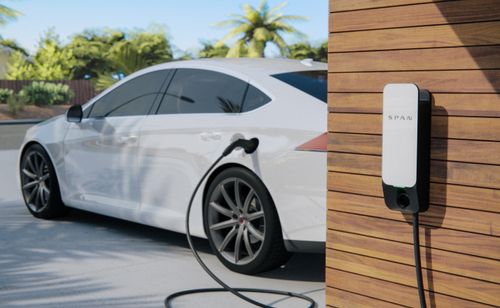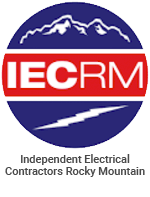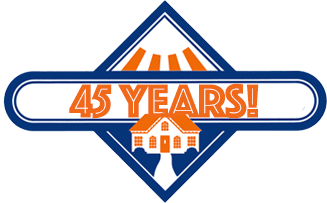Level 2 EV Charging Station Options: What You Should Know
As a variety of electric vehicles (EVs) continue to become more prevalent, our team at Save Home Heat Company will continue to post on various aspects of these relatively newer modes of transportation, which are either partially or entirely powered by electricity.
This post will focus on some of the options you may have available when you purchase a Level 2 EV charging station to be installed at your home or business. First, we’ll start off with a quick review of what these popular charging stations are and what they bring to the table, and then we’ll provide an overview of decisions or options that you may want to start thinking about as you prepare to purchase a charging station.

What Is a Level 2 EV Charging Station?
A Level 2 EV charging station is a higher performing electric vehicle charger than the basic, plug-in-the-wall,120 volt, Level 1 chargers that come standard with many EV purchases. Typically mounted on the wall inside your garage or close by in a carport area, a Level 2 charging station provides much faster charging than a Level 1 charger, up to 6 or 8 times faster!
A Level 2 EV charger is powered by 220 volt electricity, and depending on the installation and the charger, can either be plugged into a 240V electrical outlet (NEMA 14-50 rated) or hardwired into the home’s electrical panel. Our team prefers hardwired installations for the long-term safety and reliability considerations they provide, but there are certainly situations where a plug-in model makes good sense, such as if you have plans to move to a different location in the near future and will bring the charging station with you. Properly specified and installed, either option is viable.
The benefits of a Level 2 EV home charging station
The biggest reason that most electric vehicle owners install a level 2 EV charging station at their home is for convenience. In many cases, a Level 1 charger can take up to 24 hours to fully replenish an EV battery’s charge, while the recharging time associated with many Level 2 chargers is often in the 4 to 6 hour range.
Other benefits of a Level 2 home charging station include a variety of helpful and valuable features and options, as well as the installation, itself, adding value to your home. In addition, 220 volt chargers typically consume electricity more efficiently than 120 volt chargers.
Types of Level 2 EV Chargers
There are two primary types of Level 2 EV charging stations: tethered and untethered. The charging cable on tethered Level 2 chargers is permanently attached and hardwired to the charging station, while untethered chargers use an ‘independent’ charging cable that plugs into a receptacle on the charging station.
Our team of licensed electricians at Save Home Heat Company, led by our staff licensed Master Electrician, prefers tethered EV charging cables when there’s a choice and if a permanently hardwired cable is a good match for the application. Generally speaking, hardwired charging cables tend to be more reliable and convenient, and they may provide desirable breaker switch options in the service panel if the charger is installed indoors.
There are plenty of untethered (plug-in) charging cables in use, so they’re certainly a viable option. In some cases, an untethered cable may be preferable due to the versatility it provides. Regardless of which route you go, don’t skimp on the quality of the charging cable you purchase. Note, an untethered cable may need to be purchased separately, depending on the brand.
Our team is glad to advise our customers on charging station and charging cable options at any point in the purchasing process – regardless of whether we supply the charger or you provide it from another source such as a car dealership.

Level 2 EV Charger Optional Features
As mentioned, one of the benefits of level 2 EV chargers are the many features and options that are available. These include Wi-Fi connectivity, dual-port charging, retractable charging cables, and lots more. Here’s an overview of what’s out there:
User features
Many Level 2 charging stations offer a range of Wi-Fi connected remote monitoring capabilities. This often comes with features like tracking usage time and electrical consumption, as well as the ability to receive real-time maintenance and performance alerts. Some manufacturers offer products with customizable charging programs, time-of-use charging options (such as coordinating charging with times of day when electrical rates are lower), and other energy optimization charging modes.
Commercial/business features
In the case of commercial installations, some level 2 EV chargers have the option for built-in payment options, such as credit card readers or mobile payment options. In these cases, there may also be branding options such as adding a company logo or other customizable signage to the charger.
Connectivity
Many models offer 4G LTE Wi-Fi connectivity for highly reliable data transmission and monitoring, and a range of software updates. Networking options are also available on some systems.
Security
Some models have the option to include RFID (Radio Frequency Identification) cards, which are a radio-coordinated means for tracking and identifying objects. The purpose of these cards is to enhance security in the management and monitoring of charging station usage.
OCPP (Open Charge Point Protocol) options may also be available; these communication protocols are used to facilitate communication between different brands of EV charger hardware and software.
Charging options may include:
- Dual-port charging – Designed to charge two vehicles simultaneously, maximizing utilization of the charging station and potentially saving valuable time
- Load management features – Provide enhanced power sharing and load management capabilities, distributing power efficiently across multiple chargers, and coordinate with the home’s electrical load
- Charging cable length – Ranging from approximately 18 ft. to 50 ft. in length, to match differing needs and applications
- Retractable charging cables – Cable retractors or integrated cable holders help keep charging cables neat and organized
Power
The amount of power being consumed by a Level 2 charging station while it’s in use has a lot to do with charging speed, i.e. how long it will take for your EV’s charge to be replenished. The amperage rating of the charger is typically a big part of that equation; the higher the amperage rating, the quicker it’ll do its job. However, bigger is not necessarily better: Make certain that your charger’s ratings are accurately matched with your EV. Your EV dealership is probably an ideal source to ensure that you make the right choice, but if prefer, you can also turn to our experienced electrical team at Save Home Heat to provide properly matched, quality Level 2 chargers from manufacturers such as ChargePoint and others.
Regarding power options, some charging stations come with configurable power levels (in some cases, as high as 80 amps) to cater to different brands of EVs. As mentioned above, there may also be load management features which allow the station to automatically adjust charging output based on available power and demand, helping to ensure safety as well as electrical efficiency.
As more brands and updated designs of EV charging stations become available, new features seem likely to be introduced. Stay tuned!
Charging Station Rebates in the Denver Metro Area

The “green movement” has strongly embraced electric vehicles, and one of the ways this is reflected is in a range of rebates and incentives available from utilities such as Xcel Energy in the Denver metro area, along with State of Colorado and federal incentives for qualifying EV and related purchases, for qualified individuals. Xcel’s EV incentives webpage is a good place to start learning more.
One Xcel incentive, in particular, that has caught the eyes of many new EV owners is their EV charger home wiring rebate. This Xcel rebate can yield savings up to $500 for qualifying customers, and up to $1,200 for income-qualified households.
We strongly recommend talking with your trusted tax advisor before you invest in an EV. This the best approach in order to make sure you take full advantage of savings that may be available on the state and federal levels – along with whatever help your utility company can provide.
Level 2 EV Charging Station Expert Installation in the Denver Metro, Boulder & Loveland Areas
 From the Highlands Ranch area, to Metro Denver, Westminster, Boulder, and Loveland, you can count on our team of licensed electricians at Save Home Heat to install your properly matched Level 2 fast-charging EV charging station in full accordance with manufacturer and National Electrical Code (NEC) requirements. Please reach out to us today to schedule free, low-pressure install quote for your new EV charger, or for any of your home electrical needs.
From the Highlands Ranch area, to Metro Denver, Westminster, Boulder, and Loveland, you can count on our team of licensed electricians at Save Home Heat to install your properly matched Level 2 fast-charging EV charging station in full accordance with manufacturer and National Electrical Code (NEC) requirements. Please reach out to us today to schedule free, low-pressure install quote for your new EV charger, or for any of your home electrical needs.
Please contact me to schedule a Level 2 EV charging station install quote!




